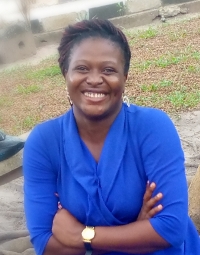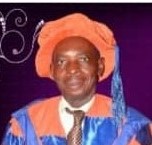with Traditional Land Holding System in Aboh,
Ndokwa East Local Government, Delta State
FEATURED PAPER
By Chukwuma I.E
Department of Estate Management,
Southern Delta University Ozoro,
Delta State, Nigeria.
and
Prof. A.N. Udobi
Department of Estate Management,
Nnamdi Azikiwe University, Awka,
Anambra State, Nigeria
ABSTRACT
The study examines the land holding system in Aboh, Ndokwa East Local Government, Delta state with a focus on the traditional land tenure system and its effects on land use development, decisions and sustainability. The research reveals that land tenure system in Aboh is mainly traditional based indicating that inheritance pattern is passed down through male descendants. However, modern changes have influenced this traditional system creating a part for women to inherit lands and property. The study also highlights the differences and similarities between Land Use Act 1978 and Land holding system in Aboh. The findings of this study have important implications for land administration, conflict resolution in Aboh and beyond. Recommendations include: Land tenure regularization, alternative dispute resolution mechanism, Community education and awareness and policy harmonization.
Keywords: Traditional, Land, holding system, Land Use Act, Aboh, Ndokwa East, Delta state.
INTRODUCTION
Land is an indispensable natural resource to man because on it human activities take place, as activities of man increases, the demand for land increases (Njoh 2014). Land is part of the culture of people both at individual and communal level. They are willing to fight and defend it as part of the spiritual concept of land. Since time immemorial, the ownership of land has often been a sensitive and politically controversial issue, perhaps one reason for this is that land unlike other investments have certain characteristics that make it different from other forms of investment such as: fixity in location, immobility, heterogeneous and indivisibility nature (Dahiya, 2012). In Aboh Town, Delta State, Nigeria, the predominant land use is agricultural, with a focus on subsistence farming, mainly cultivating crops alongside some livestock rearing due to the fertile land in the area; however, there is also a significant portion of land dedicated to residential use as Aboh is the administrative center of Ndokwa East Local Government Area, meaning there is a concentration of housing and related infrastructure.
Land tenure is the relationship whether legally or customarily defined among people as individuals or groups with respect to land. Land tenure is an institution that its rules are invented by societies to regulate behavior, these rules define how property rights to land are to be allocated within societies, how access is granted, the rights to use, control and transfer land as well as associated responsibilities and restraints (Iruonagbe, 2012). It defines who can use resources, for how long and under what conditions. The traditional land tenure system in Aboh is deeply rooted in the cultural and economic practices of the Ndokwa people. The land is primarily used for: settlements and housing, cultural and spiritual land use (sacred sites, shrines and festivals), trade and market activities (Iruonagbe, 2009). Traditional land use in Aboh, Delta State reflects a rich tapestry of cultural values, communal ownership, and sustainable practices that have evolved over generations and is deeply intertwined with the community’s cultural and historical identity. This indicates that land is not just a commodity but a communal asset that upholds ancestral heritage and social cohesion based on collective decisions under the guidance of community elders and traditional rulers. It was revealed by Iyasere and Emovon, (2013) that Traditional land tenure operates under customary law comprising of family lineages, elders’ councils, and local chiefs. These indigenous institutions play a crucial role in allocating and managing land use decisions informed by historical rights and long-held cultural practices.
Traditional settlements in Aboh are organized in a way that reflects both familial ties and cultural priorities where homes and compounds are typically clustered according to extended family or lineage groups, ensuring that communal ties remain strong. In addition, certain tracts of land are set aside as sacred spaces—areas dedicated to spiritual practices, ancestral worship, and community rituals. These sites, often protected by customary law, serve not only religious purposes but also function as natural reserves that help maintain ecological balance.
More…
To read entire paper, click here
How to cite this paper: Chukwuma, I. E. and Udobi, A. N. (2025). Comparison and Similarities of Land Use with Traditional Land Holding System in Aboh, Ndokwa East Local Government, Delta State; PM World Journal, Vol. XIV, Issue VI, June. Available online at https://pmworldlibrary.net/wp-content/uploads/2025/06/pmwj153-Jun2025-Chukwuma-Udobi-Comparison-and-Similarities-of-Land-Use-in-Aboh.pdf
About the Authors

Elizabeth I. Chukwuma
Ozoro, Delta State, Nigeria
![]()
Elizabeth Isioma Chukwuma is an Assistant Lecturer at Delta State University of Science and Technology, Ozoro, Delta State. She received both bachelor’s and master’s degrees in Estate Management from Federal University of Technology, Akure. She specializes in Land economics, Land administration and project management. She can be contacted at isiomaelizabeth01@gmail.com

Prof. Nnamdi Alex Udobi
Awka, Anambra State
![]()
Prof. Nnamdi Alex Udobi is a Former Head, Department of Estate Management, Nnamdi Azikiwe University Awka. An Associate Member of Nigerian Institution of Estate Surveyors and Valuers (ANIVS) and a Registered Estate Surveyors and Valuers (RSV). He has published national and international journals. He is a reader in Estate Management, Nnamdi Azikiwe University Awka. He is Principal Consultant at Alex Udobi and Company, a firm of Estate Surveyors and Valuers in Nigeria









